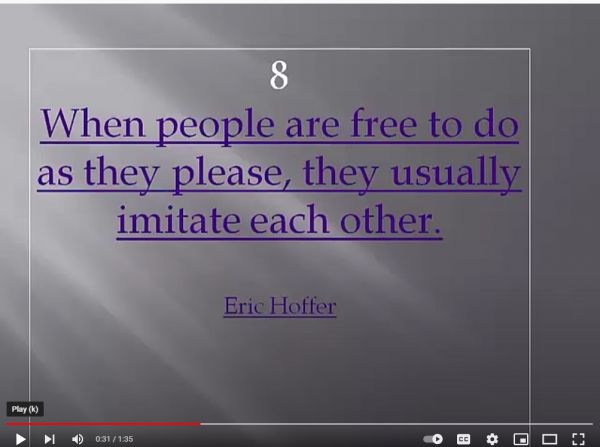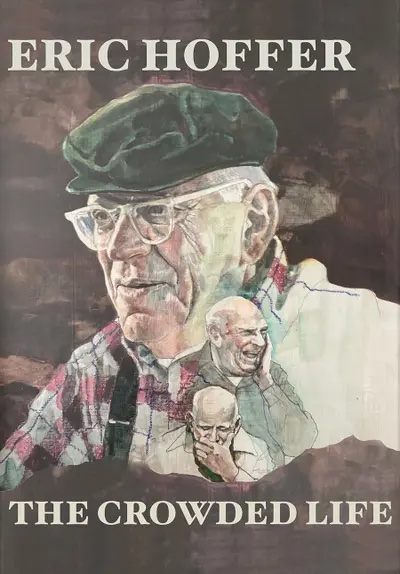A Dissident's Dictionary: True Believer 5
Fifth question: What exactly is a true believer? Hoffer has this to say in his book of that title:
18: The inert mass of a nation is in its middle section. The decent, average people who do the
nation's work . . . are worked upon and shaped by minorities at both ends—the best and the worst.
The game of history is usually played by the best and the worst over the heads of the majority in
the middle.
51: The conservative doubts that the present can be better, and he tries to shape the future in the
image of the present. . . . The radical and the reactionary loathe the present. They see it as an
aberration.
54: We are less ready to die for what we have or are than for what we wish to have and be. . . .
When men already have something worth fighting for, they do not feel like fighting.
It is strange that those who hug the present and hang on to it with all their might should be the
least capable of defending it. . . .
Dreams, visions, and wild hopes are mighty weapons. . . .The successful businessman is often a
failure as a communal leader because his mind is attuned to the "things that are."
56: Strength of faith, as Bergson pointed out, manifests itself not in moving mountains, but in not
seeing mountains to move.


